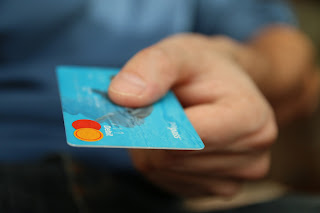Debt-Free Living: A Guide to Managing and Eliminating Debt
Debt can be a heavy burden to carry, and it can feel overwhelming to try to manage and eliminate it. However, taking control of your debt is crucial for achieving financial stability and freedom.
This guide will provide you with practical tips and strategies for assessing your debt, creating a budget, paying off debt, and building an emergency fund. By following these guidelines, you can take steps towards living a debt-free life.
Whether you are struggling with credit card debt, student loans, or mortgage debt, this guide will give you the tools you need to regain control of your finances and achieve your financial goals.
Debt refers to the amount of money that one owes to creditors. It can come in many forms, such as credit card debt, student loans, mortgage loans, and more.
B. Importance of managing debt:
Managing debt is important because it can help you achieve financial stability and freedom. High levels of debt can put a strain on your finances and impact your credit score, making it harder to borrow money in the future.
II. Assessing Your Debt
A. Gathering information about your debt:
To effectively manage your debt, it's important to know exactly how much you owe and to whom. Gather all of your bills and statements, and make a list of your debts and the interest rates for each.
B. Creating a budget:
Once you know how much you owe, create a budget to see how much money you have coming in and going out each month. This will help you identify areas where you can cut back on expenses and redirect money towards paying off your debt.
C. Identifying areas where you can cut expenses:
Look at your budget and see where you can cut back on expenses. This may include things like eating out less, canceling subscriptions, or finding a cheaper cell phone plan.
III. Debt Repayment Strategies
A. Snowball method:
The snowball method involves paying off your smallest debt first and then moving on to the next smallest debt. This can be motivating as you'll see quick progress and build momentum towards paying off larger debts.
B. Avalanche method:
The avalanche method involves paying off the debt with the highest interest rate first and then moving on to the next highest interest rate. This method saves you more money in the long run because you'll pay less in interest charges.
C. Consolidating debt:
Consolidating debt involves taking out a new loan to pay off multiple existing loans. This can be a good option if you have high-interest credit card debt and can qualify for a lower-interest loan.
D. Working with a financial advisor:
A financial advisor can help you create a debt repayment plan and provide guidance on which strategy is best for your individual situation.
IV. Building an Emergency Fund
A. Importance of an emergency fund:
An emergency fund is a savings account that you can use to cover unexpected expenses, such as a car repair or medical bill. Having an emergency fund can help prevent you from going into debt in the event of an unexpected expense.
B. Setting a savings goal:
Decide how much money you want to have in your emergency fund and set a savings goal to reach that amount.
C. Finding ways to save money:
Look for ways to save money, such as cutting back on expenses or increasing your income. You can also set up automatic transfers from your checking account to your savings account to make saving money easier.
V. Tips for Staying Out of Debt
A. Living within your means:
One of the best ways to stay out of debt is to live within your means. This means spending less than you earn and avoiding lifestyle inflation.
B. Avoiding unnecessary expenses:
Be mindful of your spending and avoid unnecessary expenses. This may include things like impulse buys or subscriptions you don't use.
C. Building good credit:
Building good credit can help you qualify for lower-interest loans and credit cards. You can build good credit by paying your bills on time and keeping your credit card balances low.
VI. Conclusion
In this article, we discussed the importance of managing debt and provided tips for assessing your debt, creating a budget, and paying offdebt. We also discussed the importance of building an emergency fund and provided tips for staying out of debt.
Managing debt can be overwhelming, but taking action and creating a plan can help you regain control of your finances. Remember to be patient with yourself and don't get discouraged if you slip up.
There are many resources available to help you manage debt, including financial advisors, credit counseling services, and online resources. It may be helpful to seek out additional help if you are struggling to make a plan or stick to it.






